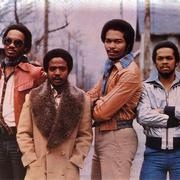Amy Ray
| 基本信息 | |||
|---|---|---|---|
| 姓名 | Amy Ray | 别名 | 暂无 |
| 国籍 | 美国 | 出生地 | |
| 语言 | 性别 | 组合 | |
| 生日 | 星座 | ||
| 身高 | 体重 | ||
Many artists, musical and otherwise, use their craft to provide a visible platform for the issues they believe in. Their activism becomes interwoven with their art. The Indigo Girls have long been known for voicing their political and social views in song. Amy Ray teamed up with Emily Saliers while in high school, and soon the duo became a staple in the Atlanta music scene. In 1981, their independent music career began with a basement recording called Tuesday's Children. One thing led to another, which led to them signing with Epic Records in 1988. Despite almost polar styles, they met on the common ground of harmony and the love of meaningful music. Ray brought fire and earth, Saliers the wind and water. The alchemy proved magical, and their brand of folk-rock hit at just the right time alongside the successes of Tracy Chapman, Suzanne Vega, and 10,000 Maniacs. With an extremely loyal and passionate fan base, they sold millions of albums and garnered numerous awards over the years, but that was never really the point. More importantly, they expressed themselves creatively, poetically, politically, and spiritually. Each release pushed the Indigo Girls' musical boundaries. They incorporated elements of folk, country, rock, pop, punk, and soul into their evolutions, giving each album a fresh sound without losing sight of their art or themselves. To give back what was given to them, Ray founded the not-for-profit Daemon Records in 1990. Her mission was to support local artists at a grassroots level, to teach young artists how to further their own careers, and to keep the independent spirit alive, not only in the Atlanta music community, but in herself as well. Rose Polenzani, ph Balance, Three Finger Cowboy, and the Rock-a-Teens, among others, have all passed through the school of Daemon. Inspired by the music of these bands and southern punk/indie-rock, Ray embarked on a solo adventure in 2000. Traveling around the southeast with guitar and amp in tow, she wrote, rehearsed, and recorded Stag, which hit the streets in March 2001. The depths and intensity of her artistry and emotions are revealed in awe-inspiring performances on its ten songs, giving Ray a forum to more fully express her political stances and questions of self in a voice and style not quite suited for an Indigo Girls album. Stag was followed by the similarly-themed Prom in 2005.
 加载评论内容,请稍等......
加载评论内容,请稍等......













